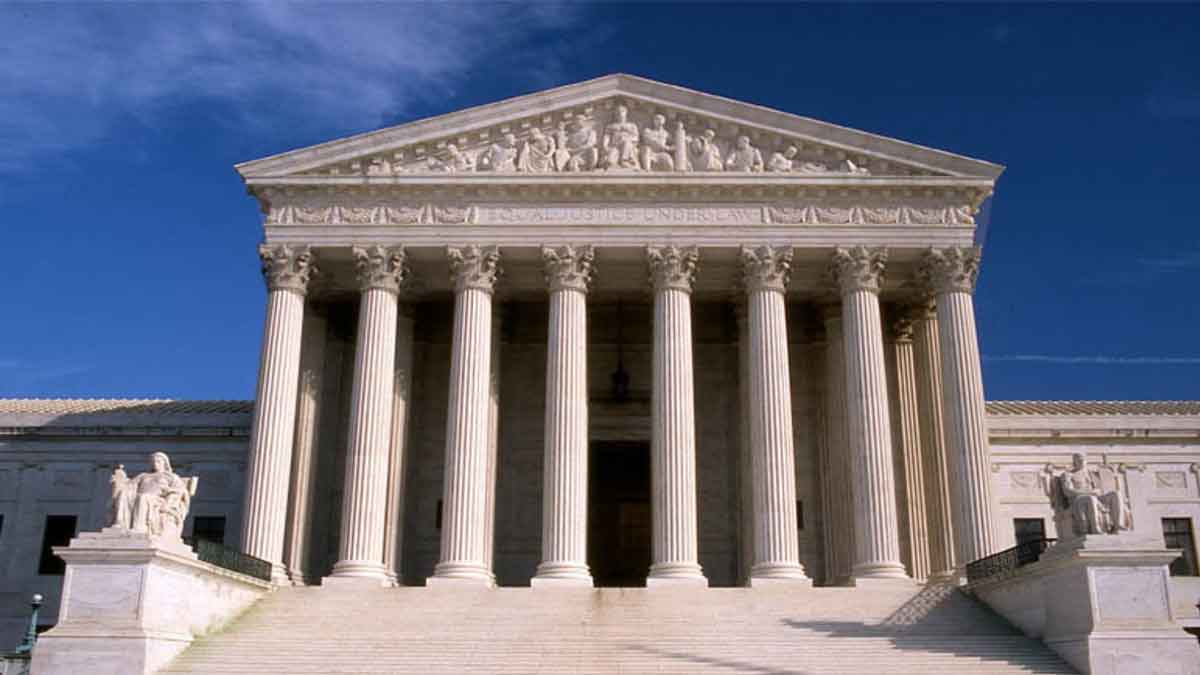- Home
- Billionaires
- Investing Newsletters
- 193CC 1000
- Article Layout 2
- Article Layout 3
- Article Layout 4
- Article Layout 5
- Article Layout 6
- Article Layout 7
- Article Layout 8
- Article Layout 9
- Article Layout 10
- Article Layout 11
- Article Layout 12
- Article Layout 13
- Article Layout 14
- Article Sidebar
- Post Format
- pages
- Archive Layouts
- Post Gallery
- Post Video Background
- Post Review
- Sponsored Post
- Leadership
- Business
- Money
- Small Business
- Innovation
- Shop
Recent Posts
Supreme Court to Review Social Media ‘Censorship’ Laws

The Supreme Court is set to review two pivotal cases on Monday that center on laws passed in Florida and Texas, specifically targeting what is perceived as “censorship” by social media companies. These cases have significant implications, potentially reshaping the landscape of how social media giants can be regulated and the type of content users encounter online, contingent on the court’s final ruling.
The cases, namely Moody v. Netchoice LLC and Netchoice LLC v. Paxton, have attracted widespread attention as they pit Netchoice, a lobbying group representing social media companies, against the states of Florida and Texas, respectively. Netchoice is challenging the constitutionality of the laws passed in these states, which it argues impede on the rights of social media platforms to moderate content on their platforms as they deem fit.
In Florida, the contentious law, which was deemed unconstitutional by an appeals court, includes provisions that penalize social media companies up to $250,000 per day for “willfully deplatforming” political candidates and prohibits the banning of “journalistic enterprises” for their content. Conversely, Texas’ law, upheld by a different appeals court, prohibits social media platforms from censoring users based on their viewpoints and mandates these companies to disclose their content moderation practices to users.
The laws under scrutiny reflect deep-seated concerns among conservatives who allege that social media platforms exhibit bias against them. However, various studies have failed to substantiate these claims. Netchoice contends that these laws violate the First Amendment rights of companies, arguing that they should have the autonomy to moderate content, drawing parallels to industries like newspapers, which have the prerogative to select what content to publish.
As the Supreme Court prepares to hear oral arguments on Monday, the eventual decision, expected before the court’s term concludes in June, holds significant weight. Critics of the laws argue that upholding them could result in “absurd results,” leading to a scenario where harmful content proliferates in the absence of content moderation. Conversely, proponents of the laws argue that striking them down could grant social media platforms broad immunity from regulation, potentially undermining efforts to ensure the accuracy of information online and curtail harmful content.
Interestingly, support and opposition to these laws do not align strictly along ideological lines. While the Biden administration has opposed these laws in court, liberal legal experts have argued in favor of upholding them, citing concerns that striking them down could grant social media platforms excessive immunity from regulation.
In a related development, the Supreme Court is also set to hear another case, Murthy v. Missouri, next month, which challenges the Biden administration’s actions pressuring social media companies to block misinformation about Covid-19, Hunter Biden’s laptop, and the 2020 election. This case seeks to prohibit the federal government from influencing social media companies’ decisions regarding disputed information.
The Supreme Court’s approach to these cases is watched closely, as it could have far-reaching implications not just for social media regulation but also for broader debates surrounding freedom of speech and the role of digital platforms in shaping public discourse.
Recent Posts
Categories
- 193cc Digital Assets2
- 5G1
- Aerospace & Defense46
- AI37
- Arts3
- Banking & Insurance11
- Big Data3
- Billionaires449
- Boats & Planes1
- Business328
- Careers13
- Cars & Bikes76
- CEO Network1
- CFO Network17
- CHRO Network1
- CIO Network1
- Cloud10
- CMO Network18
- Commercial Real Estate7
- Consultant1
- Consumer Tech180
- CxO1
- Cybersecurity68
- Dining1
- Diversity, Equity & Inclusion4
- Education7
- Energy8
- Enterprise Tech29
- Events11
- Fintech1
- Food & Drink2
- Franchises1
- Freelance1
- Future Of Work2
- Games141
- GIG1
- Healthcare78
- Hollywood & Entertainment186
- Houses1
- Innovation42
- Investing2
- Investing Newsletters4
- Leadership65
- Lifestyle11
- Manufacturing1
- Markets20
- Media193
- Mobile phone1
- Money13
- Personal Finance2
- Policy567
- Real Estate1
- Research6
- Retail1
- Retirement1
- Small Business1
- SportsMoney33
- Style & Beauty1
- Success Income1
- Taxes2
- Travel10
- Uncategorized8
- Vices1
- Watches & Jewelry2
- world's billionaires418
Related Articles
Trump Moves $4B Stake in Truth Social Parent, Stock Drops 6%
Donald Trump recently transferred his 57% stake in Trump Media & Technology...
By 193cc Agency CouncilDecember 20, 2024House Rejects Trump-Backed Funding Bill, Shutdown Looms
The U.S. House of Representatives rejected a new government funding bill on...
By 193cc Agency CouncilDecember 20, 2024Trump Named Time’s Person of the Year for Second Time
On Thursday, Time magazine honored Donald Trump as its “Person of the...
By 193cc Agency CouncilDecember 12, 2024Meta Donates $1 Million to Trump’s Inaugural Fund
Meta, the parent company of Facebook and Instagram, has confirmed a $1...
By 193cc Agency CouncilDecember 12, 2024















Leave a comment